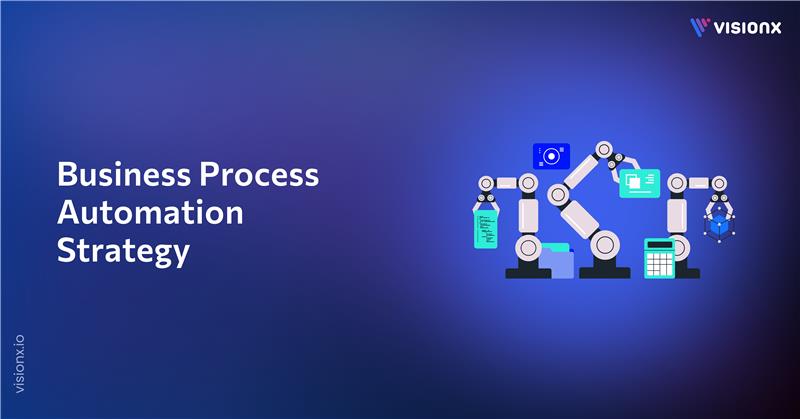Introduction
Businesses are becoming more aware of the value of business intelligence (BI) in achieving a competitive edge in today’s data-driven business environment. Data collection, analysis, and interpretation techniques, strategies, and procedures are collectively referred to as business intelligence (BI).
Business intelligence (BI) is a useful tool used by industry professionals to obtain deeper understanding of a company’s market position and pinpoint areas for development. Making educated decisions and determining the best course of action require the use of BI tools. By developing a thorough understanding of Business intelligence, you can effectively and efficiently leverage its potential to enhance a company’s standing relative to its competitors.
What is Business Intelligence (BI)?
Business intelligence is the collection of tools, procedures, and strategies that enables businesses to turn raw data into insightful knowledge and useful data. It involves collecting data from numerous sources, integrating and combining it into a single format, processing it to find trends and patterns, and presenting it in a user-friendly way.
BI aims to provide decision-makers with the information they need to make data-driven decisions that drive business growth and success. It serves as a powerful tool for managing and presenting data through comprehensive reports. BI is capable of handling various data formats, including semi-structured and unstructured data, allowing businesses to gain valuable intelligence from diverse sources of information.
Key Departments Associated with Business Intelligence
Several business departments deal with business intelligence (BI) initiatives.
- Business Intelligence Department/Team: Many organizations have dedicated BI departments or teams responsible for managing and implementing BI strategies. They oversee the development and maintenance of BI systems, data analysis, reporting, and decision support.
- IT/Information Systems Department: The IT department plays a crucial role in business intelligence initiatives. They are responsible for managing the technical infrastructure, databases, data integration, and ensuring data quality and security. IT professionals also handle the implementation and maintenance of BI tools and platforms.
- Data Analytics/Data Science Department: The data analytics or data science department focuses on extracting insights from data using statistical and analytical techniques. They work with BI tools to perform data modeling, data mining, predictive analytics, and data visualization.
- Finance Department: The finance department utilizes BI to analyze financial data, perform budgeting, forecasting, and financial reporting. They use BI tools to monitor key performance indicators (KPIs), assess profitability, and make data-driven decisions.
- Sales and Marketing Department: The sales and marketing teams leverage BI to analyze customer behavior, track sales performance, measure marketing campaign effectiveness, and identify market trends. They utilize BI reports and dashboards to make informed decisions about sales strategies and marketing initiatives.
- Operations and Supply Chain Department: The operations and supply chain departments utilize business intelligence to optimize processes, monitor inventory levels, manage logistics, and improve overall operational efficiency. BI helps them identify bottlenecks, track performance metrics, and make data-driven decisions to enhance productivity.
- Human Resources Department: The HR department can utilize business intelligence to analyze employee data, track recruitment metrics, evaluate workforce performance, and optimize HR processes. BI enables them to make data-driven decisions about talent management, employee engagement, and resource allocation.
Top 10 Benefits of Business Intelligence:
1. Improved Decision-Making
BI empowers organizations to make informed decisions based on accurate and real-time data, leading to better outcomes and increased efficiency.
2. Enhanced Operational Efficiency
By providing insights into key operational metrics, BI helps streamline processes, optimize resource allocation, and identify areas for improvement, ultimately improving overall efficiency.
3. Competitive Advantage
Business Intelligence enables organizations to gain a competitive edge by identifying market trends, customer preferences, and emerging opportunities, allowing for quicker adaptation and strategic decision-making.
4. Actionable Insights
BI tools transform complex data into intuitive visualizations, dashboards, and reports, making it easier for users at all levels to understand and act upon the information effectively.
5. Improved Forecasting and Planning
BI enables organizations to analyze historical data, identify patterns, and make accurate predictions, enhancing forecasting accuracy and aiding in strategic planning.
6. Enhanced Customer Understanding
By consolidating and analyzing customer data, BI helps organizations gain a deeper understanding of their target audience, enabling personalized marketing campaigns and better customer experiences.
7. Efficient Resource Allocation
BI provides insights into resource utilization, helping organizations allocate their budget, time, and human resources more effectively.
8. Risk Mitigation
By identifying potential risks and threats through data analysis, BI allows organizations to proactively address issues and mitigate risks before they escalate.
9. Improved Collaboration and Communication
BI tools facilitate data sharing and collaboration across departments, fostering better communication, knowledge sharing, and alignment toward organizational goals.
10. Measurable ROI
Implementing BI enables organizations to track and measure the impact of their decisions, campaigns, and initiatives, leading to a better return on investment (ROI).
Applications of Business Intelligence
Business intelligence (BI) is being leveraged across various industries to gain valuable insights, make informed decisions, and drive business performance. Here are some applications of Business Intelligence in multiple industries:
Retail and E-commerce
Retailers and e-commerce companies use BI to analyze customer buying patterns, optimize pricing strategies, manage inventory effectively, and personalize marketing campaigns based on customer segmentation.
Financial Services
The financial industry utilizes BI for risk management, fraud detection, compliance reporting, customer analytics, portfolio management, and predicting market trends. BI helps financial institutions make data-driven decisions and enhance operational efficiency.
Healthcare and Pharmaceuticals
Healthcare organizations and pharmaceutical companies utilize BI to improve patient care, optimize resource allocation, manage clinical trials, analyze patient outcomes, and track healthcare costs. BI enables better decision-making for healthcare professionals and enhances overall patient outcomes.
Manufacturing and Supply Chain
The manufacturing industry employs BI to optimize production processes, monitor supply chain performance, manage inventory levels, and improve quality control. BI enables manufacturers to identify operational bottlenecks, reduce costs, and enhance efficiency.
Telecommunications
Telecommunication companies leverage BI to analyze customer usage patterns, optimize network performance, manage customer churn, and identify market trends. BI helps in strategic decision-making, improving customer satisfaction, and developing targeted marketing campaigns.
Energy and Utilities
The energy and utilities sector uses BI for demand forecasting, energy consumption analysis, asset management, predictive maintenance, and optimizing energy distribution. BI helps in optimizing energy usage, reducing costs, and improving sustainability.
Transportation and Logistics
Transportation and logistics companies utilize BI to optimize route planning, manage fleet operations, track shipment status, and analyze supply chain efficiency. BI enables better decision-making, improves customer service, and reduces transportation costs.
Hospitality and Tourism
The hospitality industry leverages BI for revenue management, customer segmentation, personalized marketing, and analyzing guest feedback. BI helps in optimizing hotel occupancy, pricing strategies and enhancing customer experiences.
How does Business Intelligence work?
Business intelligence (BI) involves a combination of processes, technologies, and methodologies that enable organizations to gather, analyze, and transform data into meaningful insights for decision-making. Here’s a general overview of how BI works:
Data Collection: The first step in the BI process is collecting relevant data from various sources, such as databases, spreadsheets, external systems, social media, and IoT devices. This data can include structured data (e.g., sales transactions, customer demographics) and unstructured data (e.g., emails, customer reviews). Data collection may involve data integration and consolidation to ensure a unified view of information.
Data Storage and Data Warehousing: Once the data is collected, it must be stored and organized in a central location called a data warehouse or data mart. This provides a structured repository where data can be accessed, retrieved, and analyzed efficiently. Data warehouses often use technologies like online analytical processing (OLAP) and extract, transform, and load (ETL) processes to ensure data quality and consistency.
Data Transformation and Cleansing: Before analysis can occur, data must be transformed and cleansed to ensure accuracy and consistency. This process involves removing duplicates, handling missing values, standardizing data formats, and resolving inconsistencies. Data transformation and cleansing ensure the data is suitable for analysis and reporting.
Analysis and Reporting: Business intelligence tools and technologies are used to analyze data and generate reports, dashboards, and visualizations. Data analysis techniques include statistical analysis, data mining, predictive modeling, and machine learning. These analyses help uncover patterns, trends, and relationships in the data, providing valuable insights for decision-making.
Visualization and Reporting: Business intelligence solutions enable the creation of visual representations of data, such as charts, graphs, and interactive dashboards. These visualizations make it easier for decision-makers to understand complex information at a glance, identify trends, and spot anomalies. Reports and dashboards can be customized and shared with stakeholders across the organization.
Decision-Making and Action: The insights generated through data analysis and visualization support informed decision-making. Decision-makers can use the BI outputs to identify areas for improvement, develop strategies, allocate resources effectively, and make data-driven decisions. BI facilitates proactive decision-making by providing timely and relevant information to the right people.
Continuous Monitoring and Improvement: BI is an ongoing process. Organizations need to continuously monitor key performance indicators (KPIs) and track the effectiveness of their decisions. This feedback loop helps identify areas that require attention or adjustments, allowing organizations to refine their strategies and optimize business performance.
Conclusion
Business Intelligence has become an essential tool for organizations seeking to harness the power of data to drive strategic decision-making and gain a competitive advantage. By leveraging the benefits of Business Intelligence, organizations can improve decision-making processes, enhance operational efficiency, and gain actionable insights for better business outcomes. With its wide range of applications across industries, BI continues revolutionizing how organizations operate and thrive in a data-centric world.
By implementing BI, organizations can unlock the full potential of their data, turning it into a valuable asset that fuels growth and success. Embracing BI is a competitive advantage and a strategic imperative for organizations looking to stay ahead in today’s rapidly evolving business landscape.


